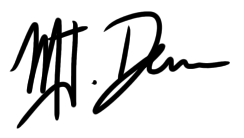The Biggest Life Decision You’ll Ever Make: “Your System Economy”
Life’s biggest decision is one most people don’t even recognize—it’s system economics.
System economics is the framework of wealth accumulation in which your vocation, job, or business are compensated. For most, system economics is simply how one is paid for work. While this is technically true, this simple definition is how people remain trapped in poverty.
System economics are unavoidable; if you earn money, you are subject to some form of system economics.
For example, if you are fortunate to be drafted into the NBA, you suddenly become subject to the NBA’s system economics. The minimum salary in the NBA is more than $1,150,000, with many NBA players making tens of millions per year. It’s safe to say that if you want a wealthy future, putting yourself into the NBA’s “system economics” is a pretty safe bet. Of course, the only problem is, only a select few are chosen to play in that system.
Over the years, I’ve spoken frequently about a wealth equation— the terms and variables in which your time are compensated. If you make $20/hour as a cashier, your wealth equation is:
$20 X (Hours Worked) = Income.
The wealth equation defines your system economics.
In another instance, my 25-year-old nephew is doing spectacularly well financially for his age. For the last 3 years, he’s been selling new and used cars. Sure, not exactly glamorous, but he’s good at his job.
More importantly, his job gifted him favorable system economics—with hard work and good salesmanship, he could earn up to $250,000 a year or more. This higher wealth ceiling also has allowed him to become a landlord of two rental properties—another form of system economics. His excess earnings are allocated into the stock market and other investments.
His system economies:
- A commissioned job with high ceilings is determined by units sold, not necessarily hours worked.
- A rental system subject to rental income and equity appreciation.
- An investment system subject to interest, dividends and stock appreciation.
Through an expanded system economy, my nephew is more likely to become wealthy than the average person. His choices led him there.
Compare my nephew’s system economies with that of, say, a cashier at Walmart earning $15/hour.
The Walmart cashier’s system economy is constrained by the number of hours worked. We can conclusively say that the cashier will NOT accumulate wealth of any measure simply due to the system economy they suffer upon.
Why is a Fastlane business so critical to wealth? Answer: It creates favorable system economies so wealth is not constrained with hard limits— you can accumulate wealth quicker where hard limits are replaced with soft limits.
Sell 100 units of X at $10 profit per day and you earn $365,000 year—soft limits.
Sell 8 units of your time at $20 per hour, 5 days a week, and you earn about $41,000 a year—hard limits.
- A real estate agent. (The system economies here have recently gone through a major disruption!)
- A CEO of a major corporation with bonuses and options.
A marketing executive at a growing startup with stock options. - The founder of a software service.
- A bus driver.
- A commissioned salesperson for industrial machinery.
- An auto mechanic.
- An auto mechanic that owns 9 shops.
- A franchisee of a sandwich store.
- A franchisor with 100 franchisees under operation.
- A founder who starts a company, takes it public and owns 40,000,000 shares priced at $15 per.
- A minor league baseball player who is called up to the major leagues and wins rookie of the year.
- A YouTube influencer with 3M subscribers.
System economies reflect the concepts of ULL (Uncontrollable Limited Leverage) and CUL (Controllable Unlimited Leverage) highlighted in The Millionaire Fastlane.
Here are some examples of careers and enterprises where the system economics vary widely…
- A real estate agent. (The system economies here have recently gone through a major disruption!)
- A CEO of a major corporation with bonuses and options.
A marketing executive at a growing startup with stock options. - The founder of a software service.
- A bus driver.
- A commissioned salesperson for industrial machinery.
- An auto mechanic.
- An auto mechanic that owns 9 shops.
- A franchisee of a sandwich store.
- A franchisor with 100 franchisees under operation.
- A founder who starts a company, takes it public and owns 40,000,000 shares priced at $15 per.
- A minor league baseball player who is called up to the major leagues and wins rookie of the year.
- A YouTube influencer with 3M subscribers.
Notice how each one of these situations has unique system economies.
Here are some questions to ask yourself as we approach the new year…
- What are your current system economics?
- What are the constraints of them?
- Can you 10X your income next year, or is it structurally and fundamentally impossible?
- How can you change or improve your system economics?
- What kind of job change will improve your system economics?
- What kind of business pivot will improve your system economics?
The most significant upgrade for your wealth is changing your system economics. Creating wealth doesn’t need to be difficult—it only becomes difficult when the system economics is limited or, worse, suffocating.

MJ DeMarco